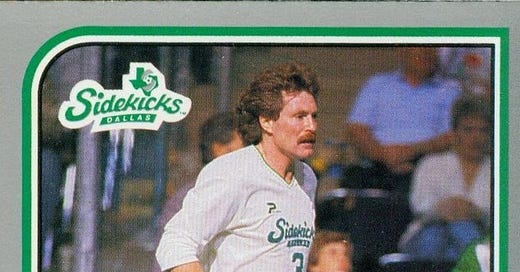Sidekicks Never Say Die - MISL 1987 - Part 3/9
After an up-and-down season, the Sidekicks make the MISL Playoffs.
To read Parts 1 and 2 of this series, click HERE…
After the first month of play, the team was an underwhelming 6-6. Then, from December 26 through mid-January, they didn’t lose a game. At the All-Star break, everything collapsed.
The team’s sponsor was the Yo-Yo.
They played eight games against playoff teams, going a not-so-inspiring 3-5. On March 24, they…
Keep reading with a 7-day free trial
Subscribe to MISL 1980s: The Story of Indoor Soccer to keep reading this post and get 7 days of free access to the full post archives.



